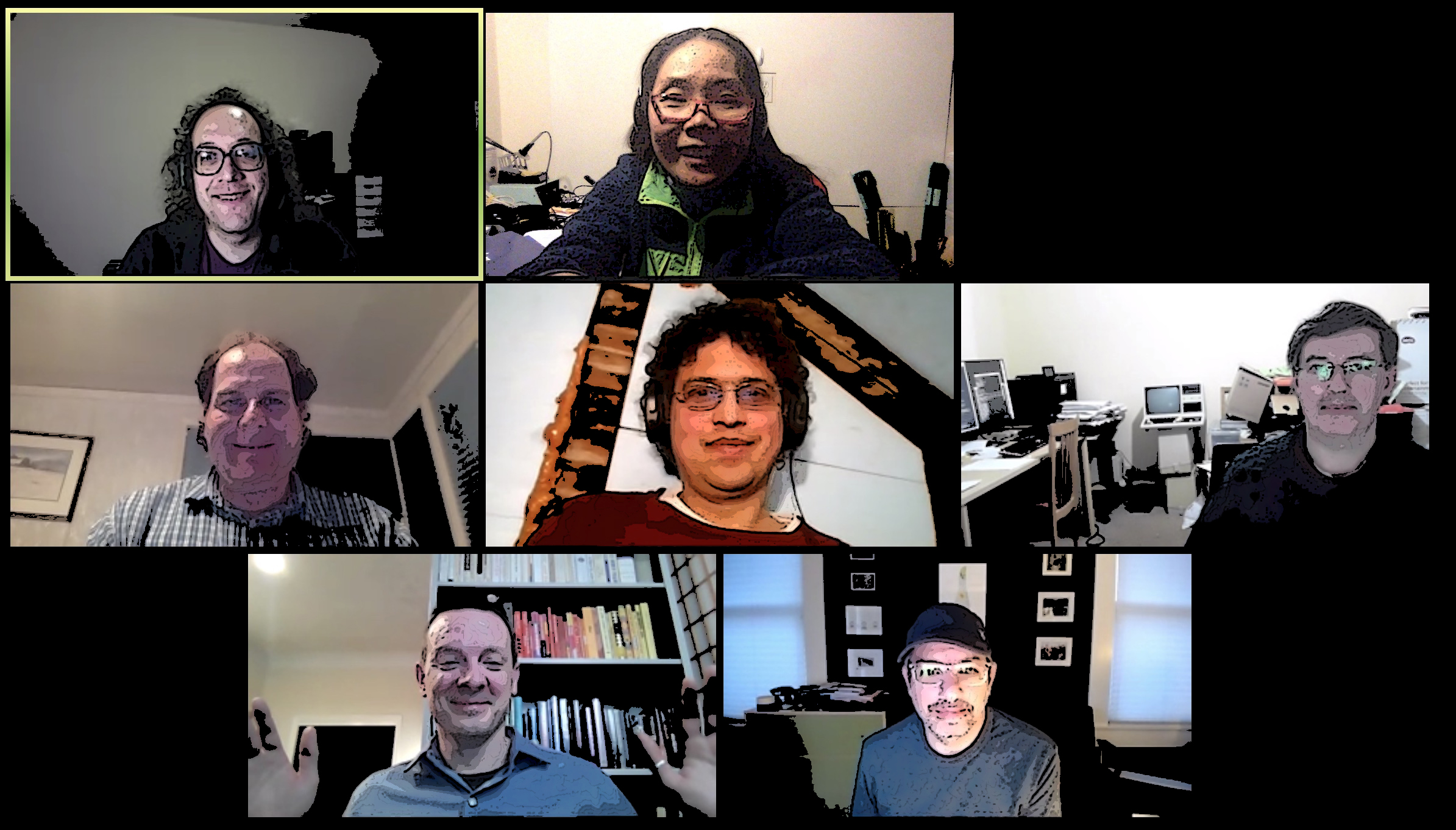
The People’s Republic of Interactive Fiction convened on Friday, Feb. 19, 2021
Zarf, nickm, feneric,, Hugh Steers, Stephen Jablonski, Josh Grams,, Michael Verdi, and anjchang. Warning: What follows is probably not proper English, but just my log of notes from the meeting to jog people’s memories:
When you’re creating an IF game, almost every game extends ontology. Limited number of types of objects. Different games with water are going to implement water slightly differently, with different needs. Within a single game, you can choose the ontology to exactly what the game needs.
Curveship has substances, so it doesn’t automatically allocate, you create all the objects that there are at the beginning. “Take the water” means take the bottle of water. Sometimes the reference to the substance that is inside container refers to the substance inside.
In Metamorphoses, EMshort had sets of objects with every possible state. A mind forever voyaging has different locations and different rooms. They are all different throughout the different decades, but they are all objects with different descriptions. Conceptually what is the best way to do this, taking into account general ways people conceive the world.
New version of Zork, several different version within the early weeks of Zork development. One version early enough that has no sword, and killing the troll is done by different mechanism.
Aaron Reed’s 50 Years of Tezt blog has gotten up to Zork. Started with early text games (Oregon trail, Atlantis, D&D, Lunar Lander, etc.) Worth reading these essays.
Zarf wrote an essay about unwinnable states in a post. Someone asked about Zork without inventory limits. No, there is one version of Planetfall without the run out of food issue. Someone said that Wishbringer a game that is harder to get into an unwinnable state. Zarf looked it and found that it is easy to get into unwinnable state (e.g. drop object in fog and other things) in WishBringer, which prompted the essay.
We have to consider the contexts of the time in terms of limitations of the games. People were playing collaboratively and got hints externally that helped them win the game. When Don Woods was working on Adventure players were surrounded by a culture of people who gave each other hints. As much as it is often a solitary experience, IF is essentially a cooperative game, they are working together to try to solve the game. Some games were created to be won with hints from the creators.
Nick’s new computer generated book “Golem” jiust launched and he’s doing some publicity related events. March 5th, 12:30pm EST he’ll be doing a discord on ELO. Next month wordhack on March 18th at 7pm.
Generative Unfoldings curated art exhibit will launch on April 1st with 14 artworks will be released. Opening is on Gather.town. Stay tuned. Avatars a bit too representational? Likelike gallery with abstract representations of people?
Nick is leading the Curveship JS research project is a javascript narrative variation system. Anjchang is involved and the repo is open-source.
Tomorrow, Nick will give a short talk about the digital literary ezine Taper, at Pittsburgh’s WinterHack. The most recent call for issue 6 of Taper received 31 submissions from 25 author groups, a new record.
Revisited the discussion of Zork object limitations and unwinnable situations.
Anjchang played through birdland with her kid. A bit mature for a 10 year old, but we glossed over the dating bits. Avoiding mushiness in media is an unwinnable situation.
Spring Thing reg deadline March 1st, Submission deadline March 28
Might do a game jam, but no Narrascope this year
IFDB Tuesday 21s moving IFDB servers and updates are planned
Noticed that the source code of the ifdb website is on github. You can clone ifdb for your own purposes on the archive. If you want to contribute, there are a lot of suggestions and it’s open-source.